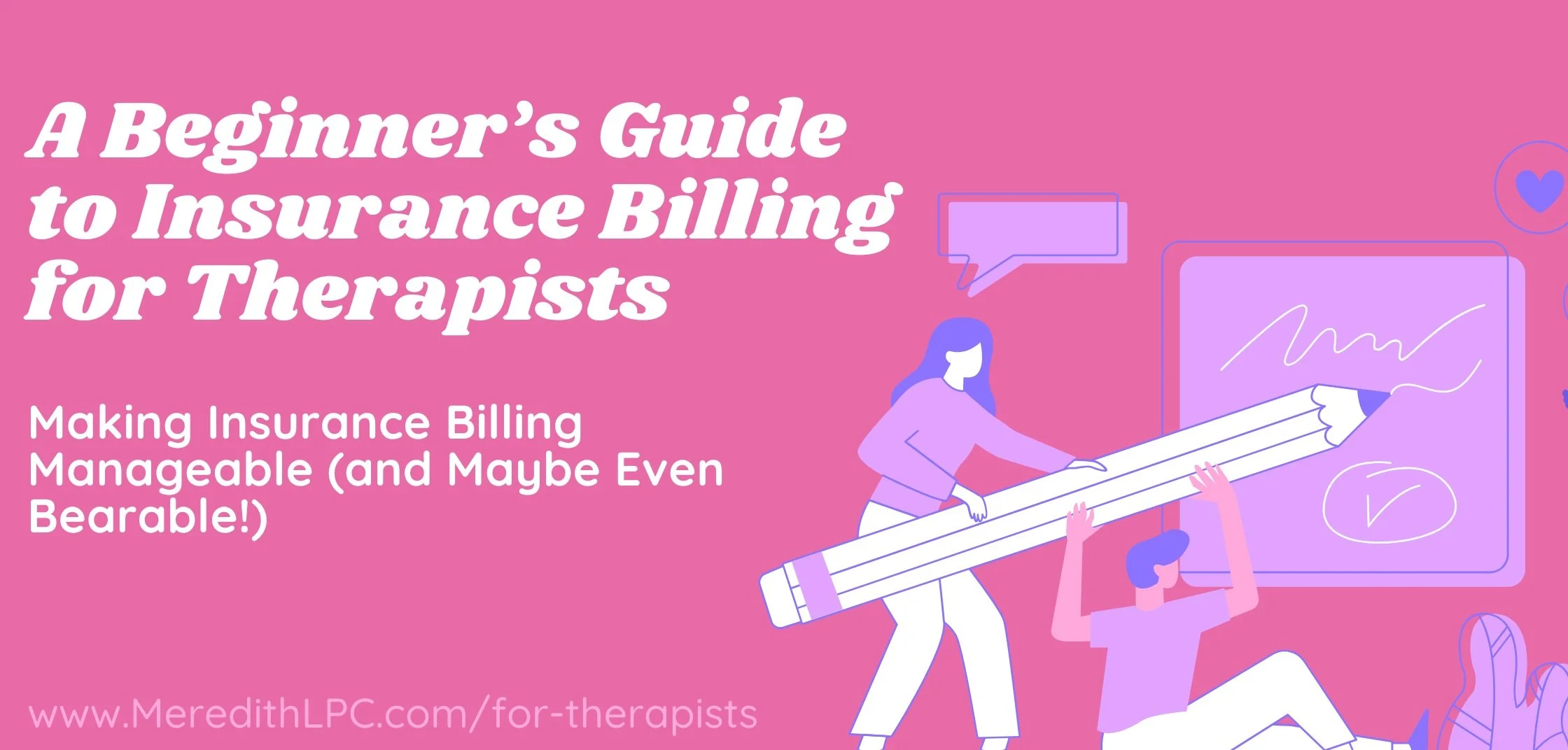Common Scams That Target Therapists—And How to Avoid Them
Running a private practice comes with a lot of responsibilities—providing quality care, handling paperwork, managing billing, and keeping up with ethics and laws. Unfortunately, scammers know this and actively target therapists in various ways. While we’re busy supporting our clients, we also need to stay aware of common scams that could cost us time, money, or even our professional reputation.
Here are some of the most common scams therapists encounter—and how to protect yourself.
1. The "Client" Overpayment Scam
How it works: A person posing as a potential client reaches out, often by email or text, claiming they need therapy but are unable to meet in person. They may say they’re traveling, deaf, or otherwise unavailable to speak directly. After agreeing to sessions, they send a check or online payment for more than the agreed amount and then ask you to refund the difference. Later, the original payment bounces or is reversed, leaving you out the refunded money.
How to avoid it: Never accept overpayments or agree to send money back to a client. Verify all payments before scheduling sessions, and be cautious of clients who refuse to communicate by phone or video.
2. Phishing Emails Posing as Licensing Boards or Insurance Companies
How it works: You receive an email claiming to be from your state licensing board, an insurance panel, or another official organization. The email may say your license is at risk, your credentials need updating, or you need to verify information. It will often contain a link that asks for personal details or login credentials.
How to avoid it: Be skeptical of emails that create urgency. Instead of clicking links, go directly to the organization's website and log in there. If in doubt, call the board or company using a verified number.
3. Fake SEO & Marketing Services
How it works: A company reaches out offering to improve your Google ranking, increase your client inquiries, or handle your marketing. They may claim your website has issues or promise guaranteed results. Often, they charge a hefty fee and either deliver poor-quality work or nothing at all.
How to avoid it: Research any company before hiring them. Ask for referrals, read reviews, and avoid anyone who guarantees quick SEO results—because legitimate SEO takes time.
4. The "HIPAA Compliance" Scare Tactic
How it works: You receive an alarming email or call stating that your practice is out of HIPAA compliance and that you must pay immediately for their service to avoid fines. These companies prey on fear, knowing that HIPAA compliance is complex and that therapists want to follow the rules.
How to avoid it: If you’re unsure about your compliance, work with a reputable HIPAA consultant or lawyer. Never give payment info over the phone to an unsolicited caller.
5. Directory Listing Scams
How it works: You receive an email or letter stating that you need to pay a fee to keep your practice listed in a professional directory—or that you’ve been "selected" for a premium listing. These directories are often obscure, rarely visited, and not worth the cost.
How to avoid it: Stick with well-known directories (e.g., Psychology Today, TherapyDen) and verify any directory before paying for a listing.
6. Fake Job or Referral Scams
How it works: Someone claims to be from an EAP, insurance panel, or large organization and offers to send you referrals or contract work. They ask for your NPI, license number, or even a fee to join their network. Later, you realize the organization doesn't exist, or your information is being misused.
How to avoid it: Research any company before providing sensitive information. Legitimate referral sources won’t ask you to pay upfront.
7. Tech Support or Website Domain Scams
How it works: You get an email saying your website domain is expiring, your email security has been compromised, or your practice's website has a "critical error" that needs immediate fixing. Scammers try to get you to send payment or login details.
How to avoid it: Always verify domain renewal notices with your actual domain provider. Be wary of unsolicited tech support calls or emails.
8. "Warrant Out for Your Arrest" Scam
How it works: You receive a call from someone claiming to be law enforcement, stating that there is a warrant out for your arrest due to missing a court summons or failing to comply with licensing regulations. This scam is commonly executed by finding therapists’ phone numbers on Psychology Today or other directories. The scammer demands immediate payment to resolve the issue and may use intimidation tactics.
How to avoid it: Law enforcement will never demand immediate payment over the phone. If you receive a call like this, hang up and contact your local police department to verify.
9. Changing an Employee's Direct Deposit Scam
How it works: If you have employees, scammers may impersonate them via email and request that their direct deposit information be changed. The new account belongs to the scammer, and by the time the fraud is discovered, the money is gone.
How to avoid it: Always verify direct deposit change requests in person or through a trusted phone number. Require employees to submit changes through a secure internal system rather than email.
Final Thoughts: Trust Your Instincts
If something feels off, take a step back. Scammers rely on urgency and confusion to trick people. Protect yourself by verifying information, being skeptical of unsolicited messages, and never sending money or personal details to unverified sources. By staying informed, you can keep your practice—and your hard-earned income—safe.
Have you encountered any scams targeting therapists? Share your experience so we can all stay ahead of the game!
Need extra support with your private practice? Schedule a consultation today!


